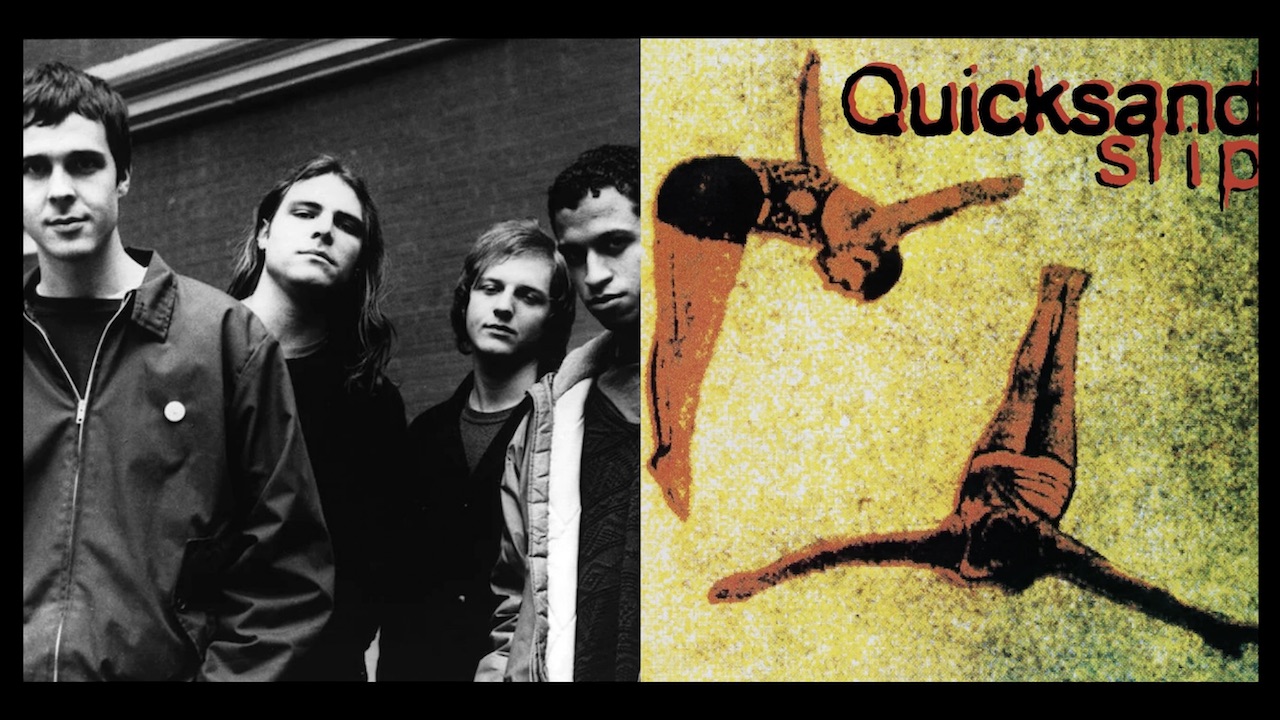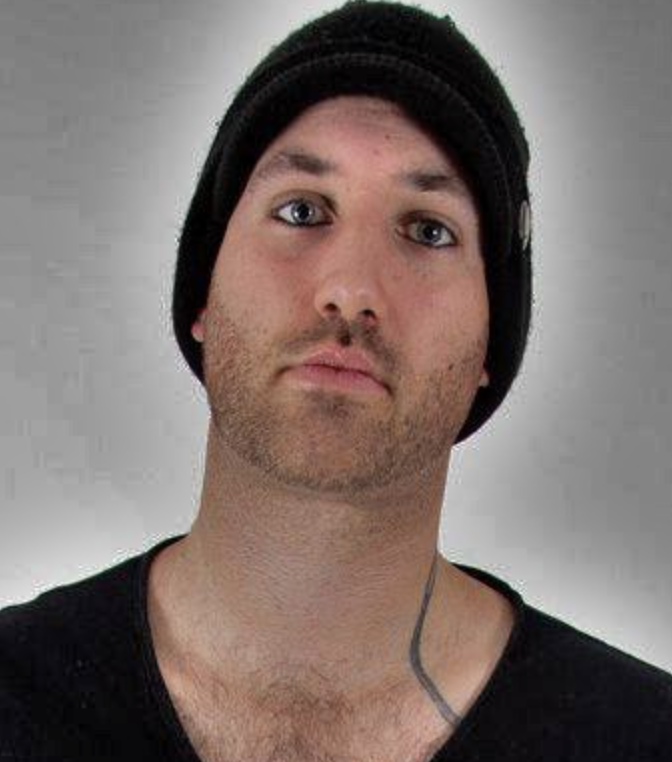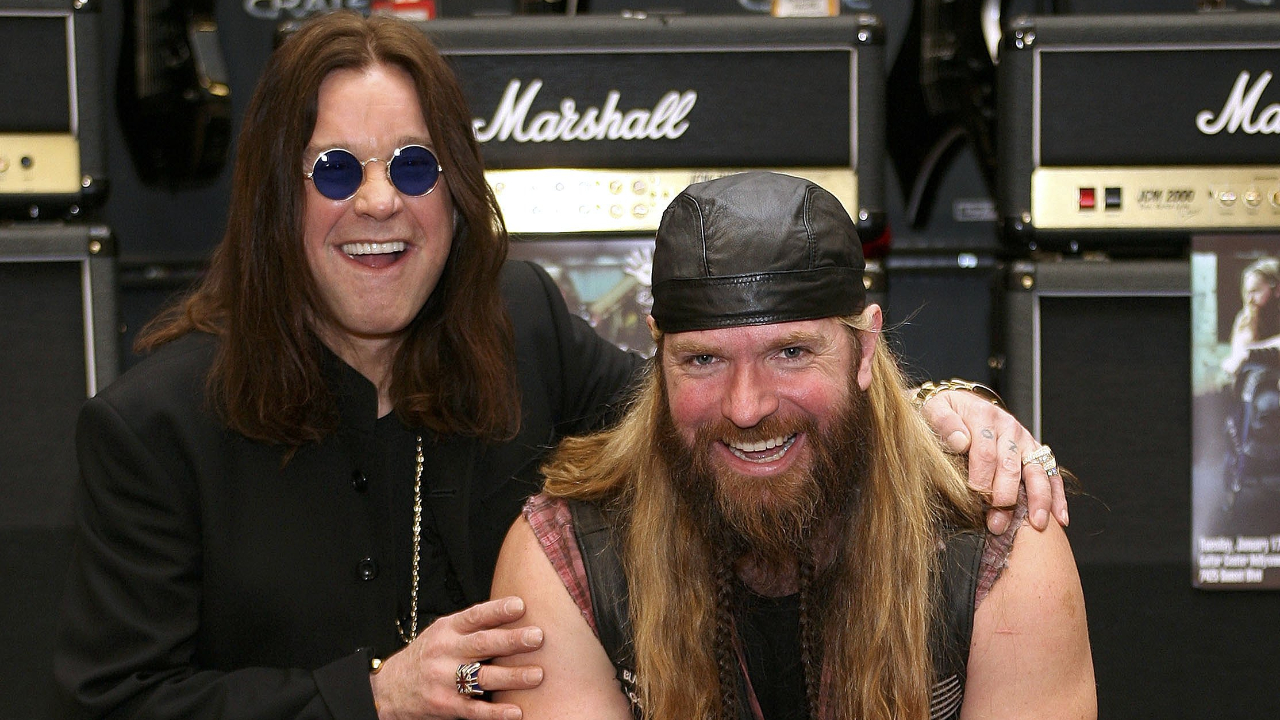“After Nirvana, anything seemed possible”: Quicksand's Walter Schreifels on Slip, the greatest '90s rock album that you've probably never heard
Released on February 9, 1993, Quicksand's debut album Slip is one of the most essential albums in post-hardcore history. So why didn't it make the New York band superstars? .

The post-Nevermind major label goldrush of the early '90’s is quite rightly revered as an incredible time for ushering unusual, uncompromising underground artists into the mainstream. The idea of grunge, skate punk, death metal, art-rock or even, God help us, ska obtaining the commercial push those genres received, no matter how brief, only a few years’ prior would have seemed totally absurd. But it happened.
Ironically, given its huge popularity today, the one sub-genre of music that the major label system seemed incapable of selling to the masses was post-hardcore. Although, it is worth remembering that the post-hardcore of today is totally unrecognisable from the style we’re talking about here. Long before the polished, highly pro-tooled, glitchy, pop-hooked filled style you may associate the genre with now, back then it was essentially a more melodically driven and sensitive version of underground hardcore punk. It might sound hyperbolic now, but back then, adding a touch of The Smiths to Agnostic Front was a unique and revolutionary concept.
And if there was one band who really should have been the ones to drag this style up from dingy clubs and onto MTV it was Quicksand.
The brainchild of Walter Schreifels, formerly of cult New York hardcore legends Gorilla Biscuits and Youth of Today, Quicksand found themselves signed to major label Polydor only three years after their formation, before releasing one of the finest debut albums of the 90’s. Slip should have turned Quicksand into the post-hardcore Nirvana, but it didn’t quite work out that way, and 30 year’s later it’s still implausible to fathom why.
In 1990 Quicksand’s self-titled debut EP was released on the tiny Revelation Records, causing a slight rumble of appreciation in the underground. Against all the odds it led to the band inking a deal with a major label.
“It came as quite a shock,” admits Walter Schreifels, as he looks back. “We were trying to do something different, something unique, something a bit more far reaching... although we wouldn’t ever have thought that it would be considered for a mainstream audience. I was pretty sure we were going to be very niche, so to get that opportunity was pretty ‘Whoah!”
Coming, as they did, from New York’s hardcore punk scene, the members of Quicksand were hesitant to jump at the offer immediately.
“There was a little conflict," Walter recalls. “I’m not sure that the culture is like that now, signing for a corporate label and coming from the underground had its own moral questions but we just thought we could live in a slightly bigger apartment and concentrate on music, so let’s see where this takes us.”
The latest news, features and interviews direct to your inbox, from the global home of alternative music.
Suddenly this hardcore band from the depths of the New York underground scene were seeing things that they never could have believed were possible.
“A lot of it was ridiculous,” Walter laughs. “We had made that first EP for nothing, like $1500, and now we’re recording in a studio where you can’t get anything done for less than a quarter of a million dollars! There were absurdities in there, but we were working with good people, who were giving us a lot of creative freedom.”
As Quicksand were in holed up in Long View Farm Studios in Boston in 1992 working on the album, the huge sea change that defined the '90s was already underway, something that Walter and his bandmates were acutely aware of.
“Even before Nirvana we were aware of it,” he tells us. “We were living in a time where Sonic Youth were in the Billboard charts. It was just weird. So we saw a potential, but we weren’t scheming on a career path. We wanted to make a cool record for the people we wanted to affect. To navigate all of these crosscurrents. The idea that this could be ‘big’ was abstract, because we didn’t know who these people were, or what they wanted us to be. But there was some really exciting and unusual stuff being put on the menu for a while there, and we were lucky to be a part of that.”
So, rather than look to ape or second guess the zeitgeist, the band ignored the noise of the alt-rock revolution. The songs Quicksand were writing for Slip sounded odd and unique, even in this amazing new alternative utopia.
“We were definitely trying to do something different,” nods Walter. “we were going from this hardcore scene that was good and exciting, and then hit a wall for a bit. We wanted to take all that was good about that scene and add something that was experimental.
“We were definitely inspired by bands that were doing cool stuff from that time, Fugazi were a big influence on us, bringing this avant-garde, DIY thing, so were Janes Addiction, doing this rock music that was experimental and sexy, we felt rally close to them. Helmet came out of the blue and they were doing this jazzy, math thing. These bands were older than us, so we were kind of regurgitating their sound with our influences. If you play outside of the border, but you still remain in the castle you can come up with really interesting stuff. A bit like when Thursday and Glassjaw came a few years later, they weren’t ripping us off, it was just more of those hardcore walls coming down.”
Those influences stretch way beyond the confines of punk, hardcore, or even traditional rock. Throw a rock at a post-hardcore or emo band today and you’ll hit someone who loves Morrissey and The Smiths, but back then hardcore New York punk and effete British indie did not mix. So, the inclusion of a cover of The Smiths' How Soon is Now as a bonus track on some versions of the album was unusual, to say the least.
“A lot of people came to hardcore through metal,” Walter says. “I came to it through new wave and punk; Echo and the Bunnymen, The Smiths, Buzzcocks, Wire, U2, that kind of thing. I got into hardcore, but I still had those influences, in the hardcore scene you’re still trying to play the role of violent dude. It was fun to play with that, even in Gorilla Biscuits I was throwing those influences in, it took it to a place they couldn’t pinpoint. People were into The Smiths, but they never would have considered doing a cover of one of their songs! It would be like outing yourself, but now people are much more open and chill.”
Polydor released Slip on February 1993. Despite the major label backing it did not trouble any charts, something Walter shrugs off easily, saying “If we were trying to write singles then maybe I’d worry.” But in a world where post-hardcore has been a part of the mainstream rock consciousness for so long, it does seem insane to listen back to Slip today and try and rationalise that most people aren’t aware of it.
From the moment the juddering Tool-style riff for Fazer come through your speakers it is pretty much a perfect record. Second single Dine Alone stomps and weaves between shimmering dream pop and grinding metal, Freezes Process is a fantastic push and pull between elegance and brute force, Unfulfilled a scrappy deconstructed groove with an incredible dub bass. Album highlight Head to Wall sounds like some kind of bizarre Fugazi and Alice In Chains mash-up. All the way through Schreifels delivers throat shredding yet inescapable melodies that should rightly be shouted back at him by crowds of millions the world over. Slip is truly magnificent, still.
Of course, it never reached the level of success if deserved, although Quicksand did get to experience what that felt like vicariously. Heading out on tour with The Offspring as their Smash album went stratospheric.
“I’m not sure it was a good match musically,” chuckles Walter. “but their fans were really good to us and we won a few people over. They asked us because they really liked us, and they were great guys. That was a fun tour, and, yeah, you could see they were on the verge of blowing up. We had toured with Rage Against the Machine in similar circumstances a few years before, you know, Zak (De La Rocha, RATM vocalist) had come through the same scene as us, and it’s cool to see people like that doing well.”
But as the 90’s progressed, so the alternative rock landscape began to change.
“After Nirvana anything really seemed possible,” says Walter. “Labels suddenly didn’t know what the answer was, ‘Do people want Dinosaur Jnr? Is that it? Do they want Melvins?’ But as the decade went on it turns out that people actually didn’t want that, what they want is Sugar Ray. The label didn’t really interfere with us, or I think you’d have heard that the albums wouldn’t sound the way they sound, but it did get exhausting in the later years.”
Slip may not have sold as many copies as a Sugar Ray album, it may have been a few more years before the ideas and influences that made Quicksand were adopted en masse when the likes of Thursday or Funeral For a Friend finally facilitated post-hardcore's true mainstream breakthrough. But, for those of us in the know, it is an album that is still fondly referenced as a true classic of the era and so deserving of so much more love.
So much so that when Iodine Records recently announced a limited-edition reissue of the album for its 30th birthday, a small portion of hardcore fans of a certain age lost their collective shit online.
“I used to think that I’d be doing this band maybe until I hit 30,” smiles Walter. “It just seemed like a cool thing to do in my 20’s. Now the thing I did then is 30 years old, and people still hold it so dear, it’s a real pleasure to be associated with something that hold so many good memories for so many.”
It may not be the biggest album of the '90s, but Slip is unquestionably one of the best.

Stephen joined the Louder team as a co-host of the Metal Hammer Podcast in late 2011, eventually becoming a regular contributor to the magazine. He has since written hundreds of articles for Metal Hammer, Classic Rock and Louder, specialising in punk, hardcore and 90s metal. He also presents the Trve. Cvlt. Pop! podcast with Gaz Jones and makes regular appearances on the Bangers And Most podcast.
